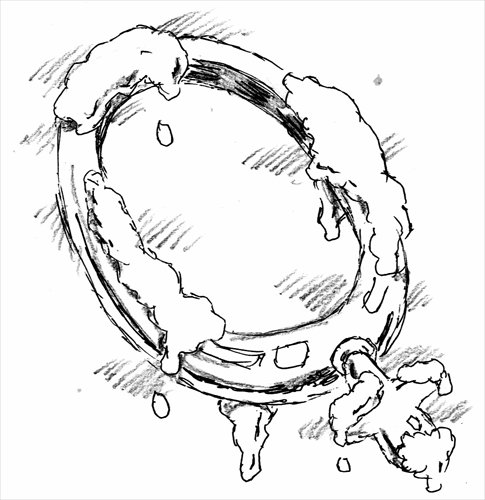Institutions can’t be allowed to freeze women out

Illustration: Peter C. Espina/GT
There are probably a thousand reasons why a divorced couple might decide to return to each other. But Harbin just added another one; local authorities in this capital city of Northeast China's Heilongjiang Province just issued a new policy, according to which married female employees are now also able to enjoy heating subsidies.
Searching local news archives online brings up earlier reports about divorces caused by the absence of a subsidy.
In 1990, local authorities in Harbin released a discriminatory policy, stipulating that married female staff for government agencies or public institutions do not enjoy a heating subsidy. Married men, however, still got it.
Some female employees thus chose a paper divorce, so that they could receive the same allowances as male staffers did. And it was reported that the couples immediately had dinner together to celebrate the divorce, which meant extra income for the family.
It's important to remember that Harbin is freezing cold in the winter, with temperatures regularly dipping below -10 C. A heating subsidy isn't a small amount of money in a northeastern city like this.
In 2006, local government changed the policy, but some government agencies and public schools were reluctant to enforce it. Every single year, as soon as winter's icy grip seized Harbin, there were "heating supply divorces."
This year, the local government clearly stipulated equal treatment for male and female employees when it comes to receiving heating compensation, and simplified the whole set of procedures. Many divorced couples were finally relieved and happily went to resume their marriage.
Humiliation stemming from institutional discrimination is called by sociologists "institutional humiliation." Gender discrimination was a long tradition in ancient China. Some observers believe that in Mao's era, China's gender equality was rapidly increased, and reached a level that even rivaled or exceeded the situation in some developed countries. But certainly, this heavy tradition isn't easy to shake off. Its remnants are just everywhere.
Women's attitude toward this tradition is quite divisive, due to disparity in education levels and regional development. Women in rural areas are largely less free in personal choices, whereas in large cities more women insist that they enjoy equal rights with their male counterparts.
This way of thinking in turn promotes positive changes in big cities and more developed regions in terms of gender equality. Generally, public policies that discriminate against women are seen as unbelievable.
In other words, discrimination against women is becoming increasingly hidden nowadays, and this is the more difficult part in terms of boosting gender equality. For instance, in job market, employers may open positions to all applicants, but actually only want male candidates to fulfill the job positions.
In China's context, women have been playing a supporting role to men or to their family. This is exactly the cultural indication behind the discriminative subsidy policy in Harbin. The heating supply for a family should be distributed to the head of a household, supposedly a man, therefore a woman employee doesn't need to receive the allowance, since her husband may have already received it.
As China transitions to a modern country, the role of women is under fierce debate. While some argue that women deserve the chance to succeed on their own, others claim China's tradition of women supporting men is very "scientific." In big cities too, quite a few female professionals think that returning home to be a housewife is an attractive choice.
But still, women should have their own right to choose. In Harbin's case, women should be able to choose to get the allowance either by themselves, or through their husbands if they really want this. They should not be simply kicked out from the subsidy receivers' list.
The author is an opinion editor with the Global Times. chenchenchen@globaltimes.com.cn